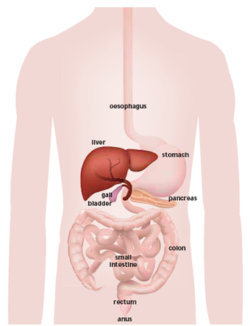
Irritable Bowel Syndrome (IBS) is a common gastrointestinal disorder characterized by abdominal pain and changes in bowel habits. Managing IBS effectively often involves a combination of treatments and medications tailored to individual symptoms. Understanding the available options can help improve quality of life and alleviate discomfort.
Understanding IBS
What is IBS?
IBS is a functional gastrointestinal disorder that affects the large intestine. Symptoms typically include abdominal pain, bloating, diarrhea, constipation, or a combination of these symptoms. Unlike other digestive disorders, IBS does not cause changes to the bowel tissue or increase the risk of colorectal cancer.
Symptoms of IBS
Symptoms of IBS can vary from person to person but generally include:
- Abdominal Pain: Cramping or pain often relieved by bowel movements.
- Bloating: A feeling of fullness or swelling in the abdomen.
- Diarrhea: Frequent, loose, or watery stools.
- Constipation: Infrequent bowel movements or difficulty passing stools.
- Mixed IBS: A combination of diarrhea and constipation.
Treatments for IBS
Dietary Modifications
Adjusting your diet is one of the first steps in managing IBS. Identifying and avoiding trigger foods can significantly improve symptoms. Common dietary changes include:
- Low FODMAP Diet: Reducing the intake of foods high in fermentable oligosaccharides, disaccharides, monosaccharides, and polyols can help alleviate symptoms.
- Fiber Intake: Increasing soluble fiber, found in foods like oats and apples, can help manage both constipation and diarrhea. However, insoluble fiber, found in wheat bran, can sometimes exacerbate symptoms.
Lifestyle Changes
Making certain lifestyle adjustments can also aid in managing IBS. Recommendations include:
- Regular Exercise: Engaging in regular physical activity can help regulate bowel function and reduce stress.
- Stress Management: Techniques such as yoga, meditation, or cognitive behavioral therapy (CBT) can help manage stress, which often exacerbates IBS symptoms.
- Adequate Hydration: Drinking plenty of water supports overall digestive health and can help with constipation.
Probiotics and Supplements
Probiotics are beneficial bacteria that can help balance the gut microbiota. Certain strains, such as Lactobacillus and Bifidobacterium, may alleviate IBS symptoms. Additionally, supplements like peppermint oil may help reduce abdominal pain and bloating.
Medications for IBS
Antispasmodics
Antispasmodic medications, such as hyoscine butylbromide (Buscopan) or dicyclomine, can help relieve abdominal cramping and pain by relaxing the muscles in the gut.
Laxatives
For individuals with IBS-related constipation, laxatives such as polyethylene glycol (MiraLAX) or lactulose can help ease bowel movements. However, it is important to use these under the guidance of a healthcare provider to avoid dependency.
Antidiarrheals
In cases of IBS with diarrhea, medications like loperamide (Imodium) can help reduce the frequency of bowel movements and improve stool consistency.
Selective Serotonin Reuptake Inhibitors (SSRIs)
SSRIs, typically used as antidepressants, can also be effective in treating IBS, particularly when symptoms are linked to stress or depression. Medications such as fluoxetine (Prozac) or sertraline (Zoloft) may help alleviate symptoms by affecting serotonin levels in the gut.
Medications for IBS-C
For IBS with constipation (IBS-C), specific medications such as lubiprostone (Amitiza) or linaclotide (Linzess) are available. These drugs work by increasing fluid in the intestines and promoting bowel movements.
Medications for IBS-D
For IBS with diarrhea (IBS-D), bile acid sequestrants like cholestyramine (Questran) or newer medications like eluxadoline (Viberzi) can help manage symptoms by affecting gut motility and reducing diarrhea.
It is important to work closely with a healthcare provider to determine the most effective treatment plan for IBS. Since IBS symptoms can vary widely among individuals, a tailored approach is often necessary. Combining dietary modifications, lifestyle changes, probiotics, and medications can provide significant relief and improve the overall quality of life for those living with IBS. Regular follow-ups and adjustments to the management plan are crucial as symptoms may change over time. Additionally, mental health support can play a pivotal role in managing stress-related symptoms, highlighting the need for a holistic treatment strategy.
Conclusion
Managing IBS involves a comprehensive approach that includes dietary modifications, lifestyle changes, and, if necessary, medications. By working with healthcare providers to tailor a treatment plan that addresses individual symptoms, individuals with IBS can achieve significant relief and improve their quality of life. If you suspect you have IBS or are struggling with symptom management, consult with a gastroenterologist or dietitian for personalized guidance and support.
